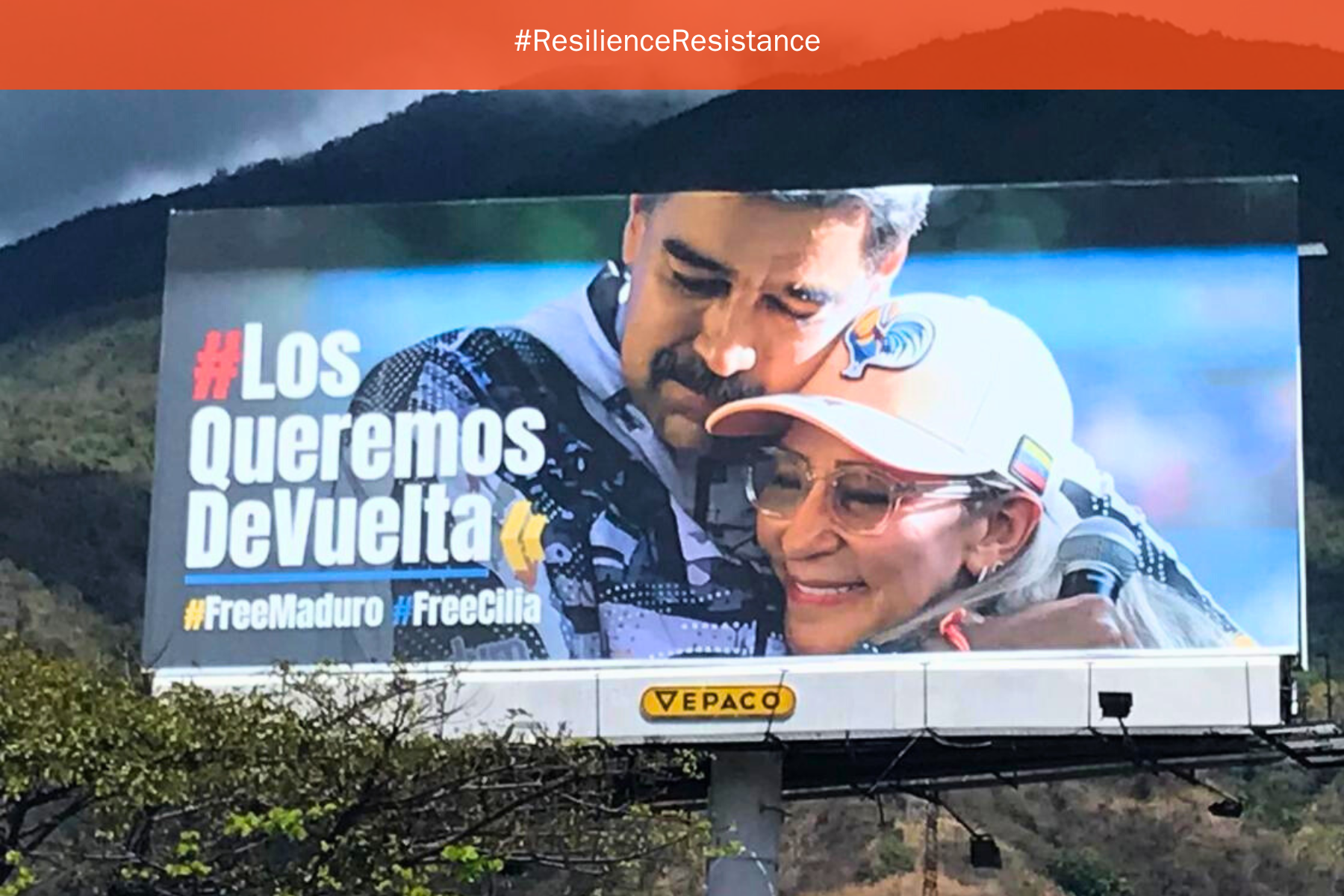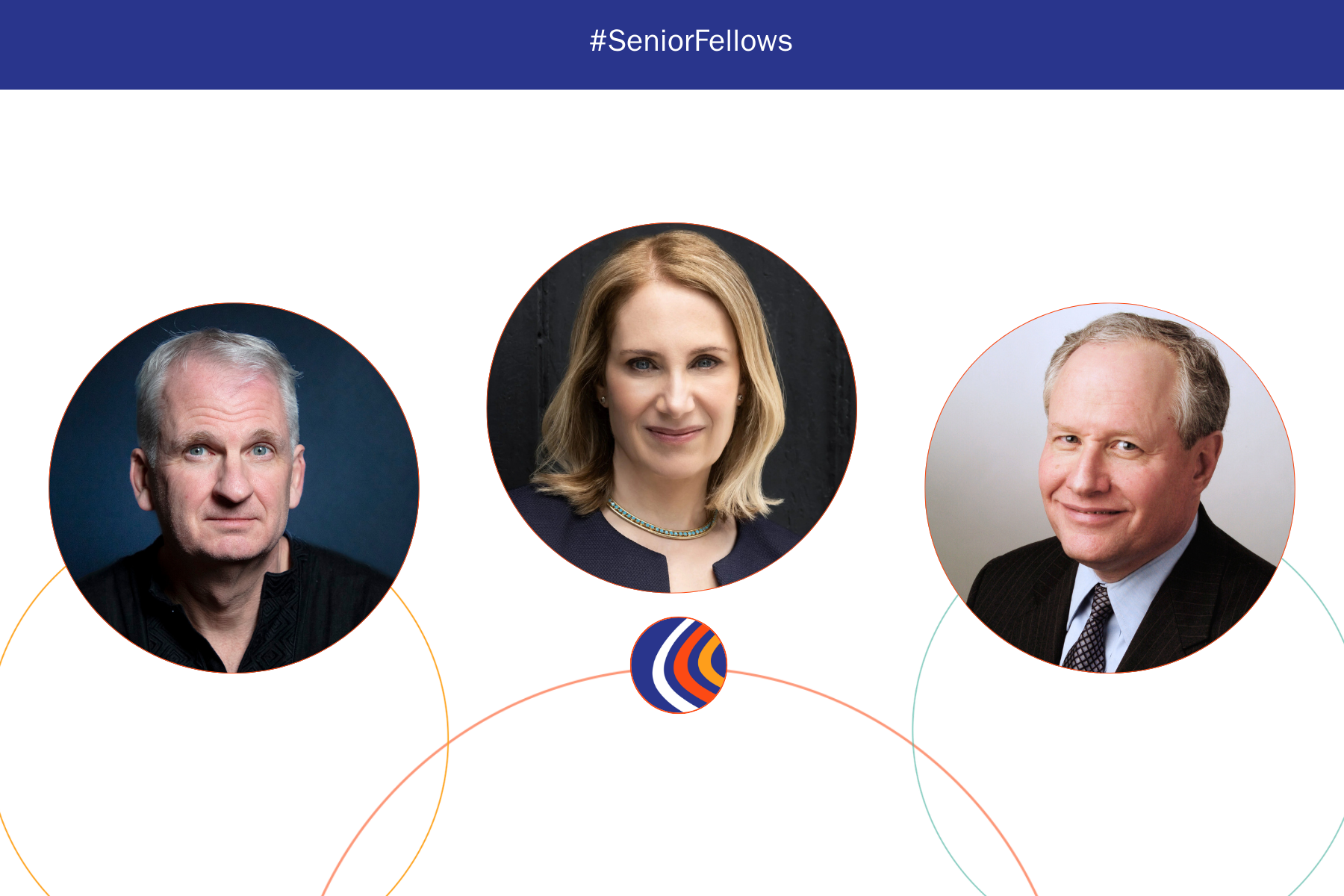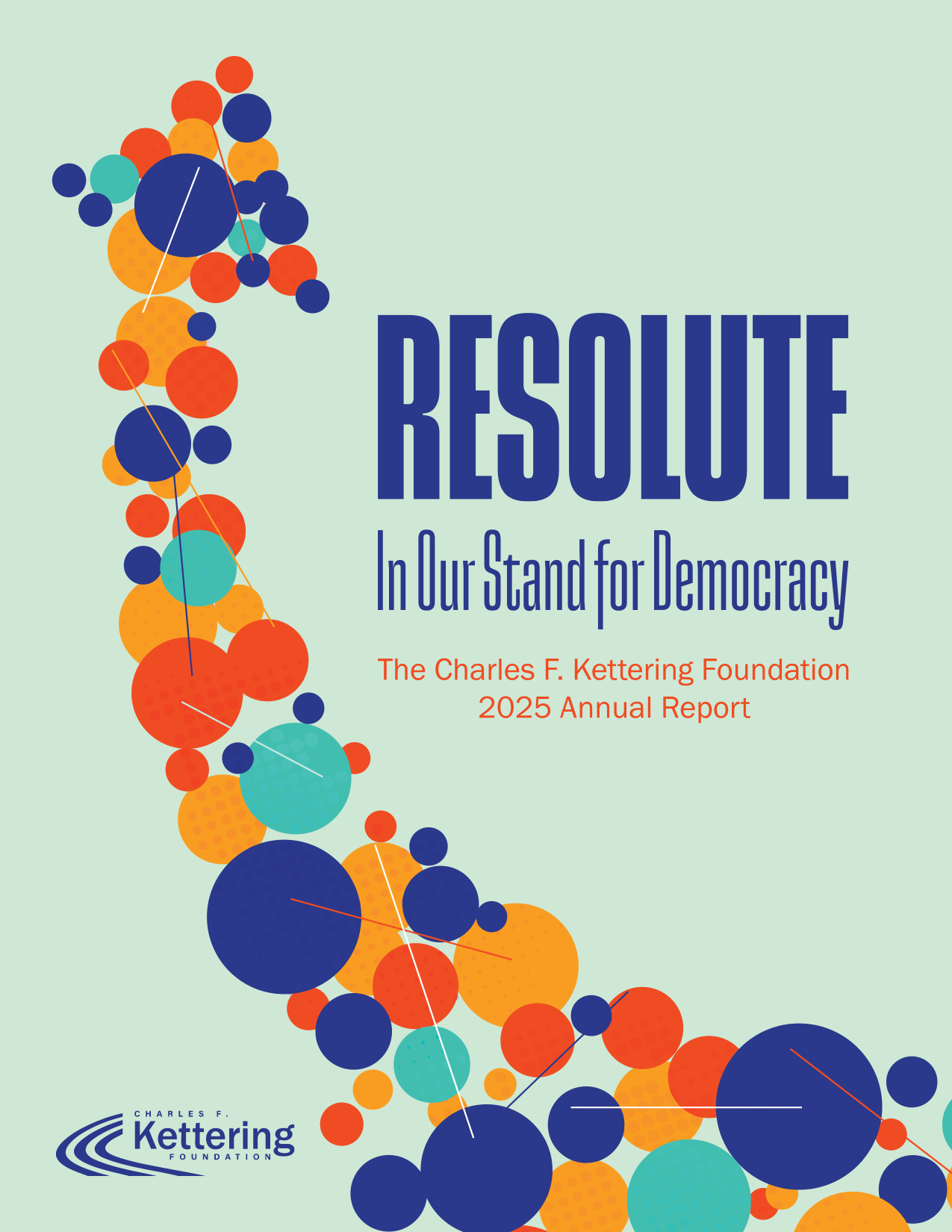News & Ideas
Our Work
We advance our work across five focus areas. Through these focus areas, we promote democratic principles and values and counter attacks on democracy.
- 1
Defending Inclusive Democracy
Defend inclusive democracy by raising awareness of and responding to its greatest threats.
- 2
Information for a Democratic Society
Provide the public with information to heighten awareness of the needs of democracy and to enable the public to recognize authoritarian threats.
- 3
Democracy and Community
Strengthen community voices, mutuality, and collective action for greater citizen engagement and influence over local problem-solving and government.
- 4
Democracy and the Arts
Integrate the unique power of the arts into the Kettering Foundation’s work locally, nationally, and internationally.
- 5
Democracy around the Globe
Strengthen an international community of partners to promote and defend inclusive democracies around the globe.
Awards & Fellowships
The Kettering Foundation’s Dayton Democracy Fellowship is a program that supports innovative leaders, changemakers, and dreamers who are building movements for inclusive democracy in their communities and in our wider world.

The Charles F. Kettering Foundation’s research fellows are leading scholars, practitioners, and public intellectuals who produce timely, high-impact research that informs and advances inclusive democracy.
The Charles F. Kettering Foundation has established an elite group of senior fellows to work with the foundation to advance our pro-inclusive democracy mission.
The Charles F. Kettering Global Fellowship for Advancing Inclusive Democracies is a six-month program designed to promote leadership in global civil society and to nurture and support those working to build inclusive democracies around the world.
This fellowship award is named for David Mathews, who served as president and CEO of the Kettering Foundation from 1981 to 2022 and is now president emeritus.

The Katherine W. Fanning Fellowship in Journalism and Democracy is awarded to journalists and scholars from around the world whose work furthers the lifelong commitment to journalism in service and democracy made by Katherine Fanning, an innovative and influential newspaper editor and publisher.
The Kettering Democracy Prize honors and elevates the work of an individual or group that has gone beyond the ordinary to champion and defend inclusive democracy.
Ruth Yellowhawk was a community-centered radio journalist and storyteller who worked with the Kettering Foundation from 1997 to 2010. Her belief in inclusion and equity was demonstrated through her work in public radio, research, restorative justice, and education.
Resolute in Our Stand for Democracy:
The Charles F. Kettering Foundation 2025 Annual Report
Resolute in Our Stand for Democracy reflects a defining year in which the Charles F. Kettering Foundation confronted extraordinary threats to democracy at home and around the globe. Amid accelerated executive overreach, censorship, and attacks on civil and human rights, the foundation met the moment. In this second year of our strategic plan, we continued our commitment to speaking plainly about the stakes, stood with courageous leaders, and expanded partnerships committed to protecting democracy domestically and worldwide.

